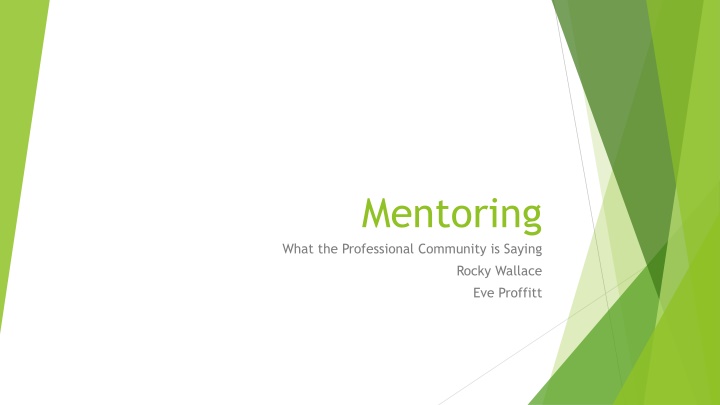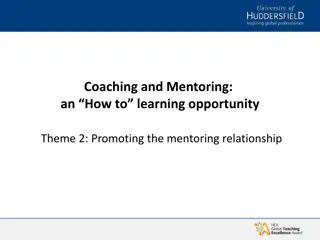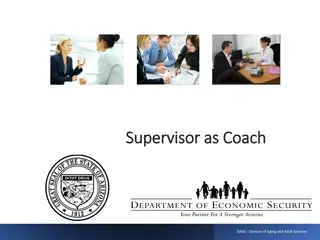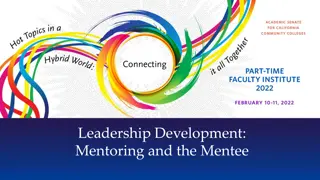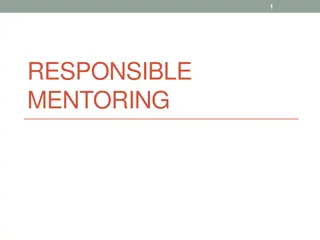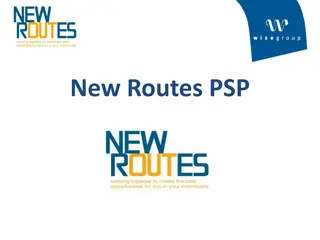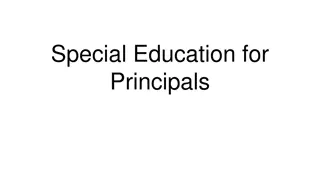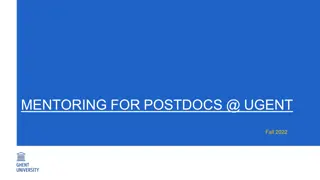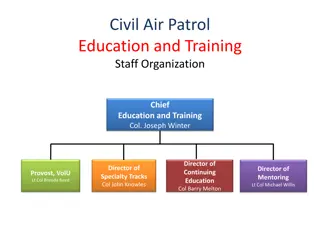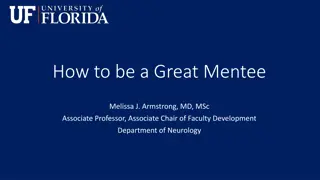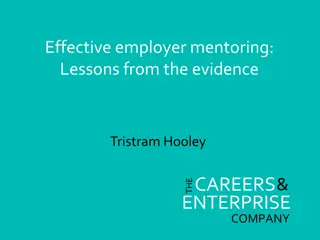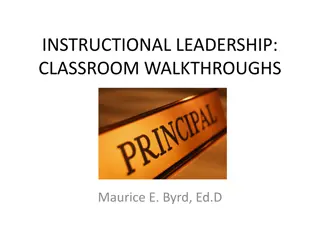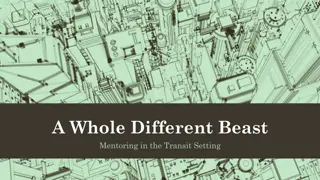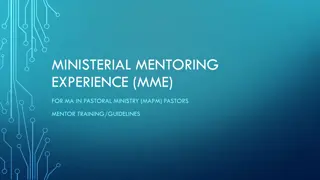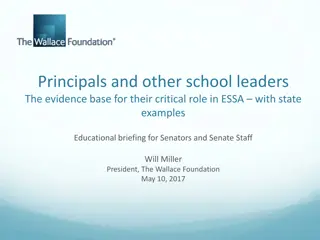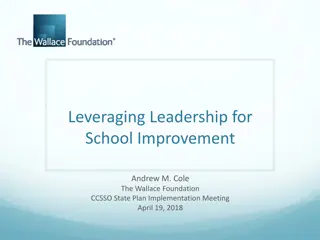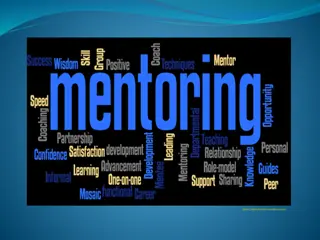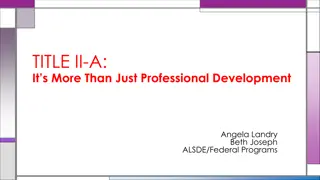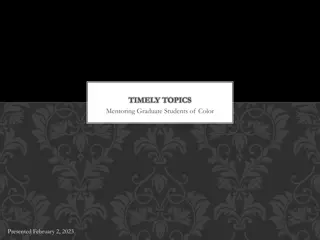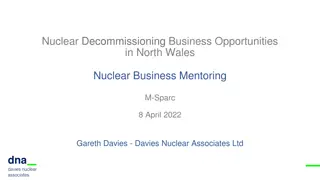Insights into Mentoring for New Principals in the Professional Community
The professional community emphasizes the importance of mentoring for new principals, citing major stressors like technical skill mastery and feelings of inadequacy. Mentoring is seen as a crucial tool in preparing effective school leaders, offering benefits such as increased job satisfaction and career advancement opportunities. However, challenges exist in mentor-protégé relationships, including lack of mentor agreement on functions and informal mentorship setups. Strategies for effective mentoring and addressing specific school needs are highlighted.
Download Presentation

Please find below an Image/Link to download the presentation.
The content on the website is provided AS IS for your information and personal use only. It may not be sold, licensed, or shared on other websites without obtaining consent from the author.If you encounter any issues during the download, it is possible that the publisher has removed the file from their server.
You are allowed to download the files provided on this website for personal or commercial use, subject to the condition that they are used lawfully. All files are the property of their respective owners.
The content on the website is provided AS IS for your information and personal use only. It may not be sold, licensed, or shared on other websites without obtaining consent from the author.
E N D
Presentation Transcript
Mentoring What the Professional Community is Saying Rocky Wallace Eve Proffitt
Major sources of stress for new principals The need to master technical skills The demands of a wide range of constituents Personal feelings of inadequacy The fast-paced environment The task of supervising teachers The sense of isolation in their new role
Why mentoring? Job more complex and critical. Demands are great, compensation per day is less Teachers who go on to become principal are ill prepared for the job Turnover, fewer are staying Stressful work conditions Lack of resources and support Case of Lone Ranger Thrown into job without a lifejacket----sink or swim
Mentoring Seen as a tool for preparing and developing effective school leaders Must be neutral and somebody who understands the challenges of the job Districts trying to create support through leadership academies Mentors work closely with prot g s---must be confidential and able to answer any question, personal or professional Coaches work with more than one principal and certain aspects of principal ship is addressed Mentoring relationship must be authentic.
Mentoring Mentoring relationships must be authentic, prot g must be willing to accept mentors feedback and incorporate it into practice. Flexibility must be built in for relationships that might not work. Great principals are not necessarily great mentors Majority of mentors are white males, 73% of aspiring principals are female.
Benefits of mentoring Mentors report: greater overall job satisfaction, increased recognition from peers, greater opportunities for career advancement, and renewed enthusiasm for profession. Prot g s Have increased confidence about own professional competence Ability to see theory translated into practice Create a collegial support system Have a sense of belonging
Issues with Mentoring Studies focused on success of mentoring, not mentoring construct There is lack of agreement on functions of mentors Mentor relationships are usually informal Issues of assigning mentors Geographical closeness to mentee Providing principals with strategies to confront specific needs of their school-- -not a general program Availability fits new principals schedules
Issues of Mentor Programs How to select principal mentors How to train them How to establish appropriate criteria for matching mentors and new principals How to provide mentors adequate compensation so they have the incentives to put in considerable time and thought that good mentoring relationships require How to focus the subject matter of mentoring so that it meets the individual needs of the new principal AND the goals and standards fo the district How to secure and sustain the funding to do the above
Successful Mentoring Programs Have clearly defined purpose and goals Select mentors on basis of interpersonal skills and interest in developing young professionals Have mentor training formal training not everyone knows how to be a good mentor Mentors are accessible to prot g s Outline meaningful activities and ways to involve mentees in these experiences Active endorsement by key stakeholders Evaluate the mentor program
Elements of Effective Mentoring Organizational Support Clearly Defined Outcomes Screening, Selection, and pairing Training Mentors and Prot g s Learner-centered focus An investment of time and commitment The creation and maintenance of a mutually enhancing relationship Mentor not an evaluator or supervisor
What We Dont Want Field based experiences that amount to little more than pointing an aspiring principal to a vacant desk and loading him/her up with busywork Fake experiences Just anyone available to mentor who has the time Just access to one type of environment Not just complete a list of tasks required by courses but actual projects focusing on school improvement and professional growth for leadership competencies.
How Can We Get Principal Programs Right? Strong partnership between school districts and universities How to lead change in school and classroom practices for higher student achievement Well planned university programs that emphasize knowledge and skills in improving schools and raising student achievement University programs with well planned and supported internships through a developmental approach, observe, participate, lead University programs that incorporate rigorous evaluation of participants mastery of essential competencies
